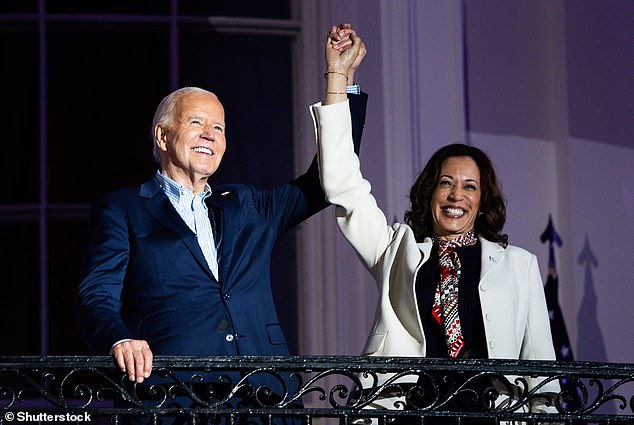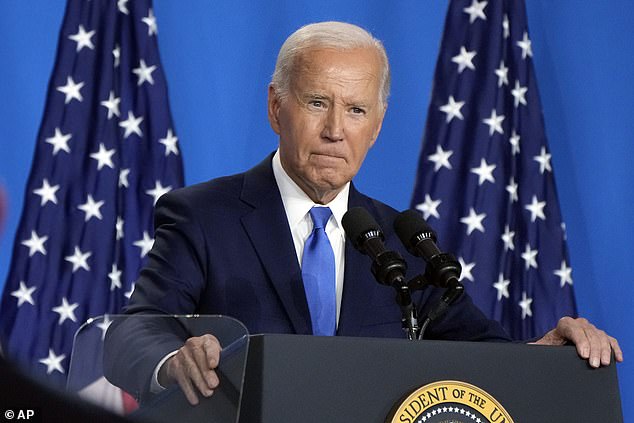Table of Contents
President Biden dropped out of the 2024 presidential race on Sunday, setting off an unprecedented chain of events that has Democrats racing to have a candidate for the top of the ticket less than four months before Election Day.
The Democratic National Convention is set to begin August 19-22 in Chicago, where Biden was scheduled to formally accept the nomination after receiving 3,896 delegates during the primaries.
More than 4,600 delegates and thousands of other party officials will now head to the city without Biden as a potential Democratic nominee.
The president made the announcement in a letter to his fellow Americans where he wrote that it has been the greatest honor of his life to serve as president.
“While it has been my intention to seek re-election, I believe it is in the best interest of my party and the country that I step down and focus solely on fulfilling my duties as President for the remainder of my term,” he wrote.
President Joe Biden announced Sunday that he would step aside from seeking reelection in the 2024 presidential race, saying it was best for the party and his country.
His announcement came just weeks after the president’s disastrous debate performance raised questions about whether he was fit for a second term. Some Democratic lawmakers publicly called for him to drop out of the race, while others kept their views to themselves.
Voters were divided on the path forward. Several polls showed most Democrats thought he should drop out of the race, but many said they would still vote for him if he stayed.
Only Biden could make the decision on his departure. Now that he has made it, here’s what will happen next:
What are the nomination rules?
The Democratic Party has rules in place that determine what happens if the president steps aside before being formally nominated.
While Biden had the necessary delegates, his formal nomination would take place during a virtual count before the convention. The latest indications are that it would take place in the first two weeks of August, but not before August 1.
Because Biden dropped out of the race before officially becoming the nominee, the more than 3,900 pledged delegates can cast their ballots at an open convention for the candidate of their choice.
All of the alternatives to Biden that were floated before he dropped out of the race insisted they were backing Biden. It is unclear who will join the race after his exit.
Delegates told DailyMail.com before their departure that they would continue to support Biden. Only a few were willing to speculate on an alternative choice, but many suggested it should be Vice President Kamala Harris, whom Biden endorsed on Sunday to succeed him.
If a candidate wins a majority of pledged delegates on the first ballot, he or she becomes the party’s nominee.
If no candidate wins a majority, the nearly 740 superdelegates, also known as automatic delegates, which include party members and elected officials, can also vote.
Voting continues until one candidate receives a majority of delegates.
Before dropping out of the race, Biden expressed confidence in his second-in-command, Vice President Kamala Harris. At the time he had insisted he would not drop out of the race, but on July 11 he said that ““I wouldn’t have elected her” if “I didn’t think she was qualified to be president.”

President Biden with Vice President Kamala Harris at the White House on July 4
Another factor driving the vice president as a viable alternative is the race for money.
What about the money?
One of the biggest challenges for Democrats is how to raise a huge sum of money large enough to take on Donald Trump in a short period of time. Biden’s money would not necessarily flow to his replacement, leaving a lot of money on the table.
In the second quarter of the year, Biden’s team raised a total of $264 million and ended June with $240 million in cash on hand.
Federal candidates can make unlimited transfers of their funds to the national party, so Biden could leave all the money in the Democratic Party, which can then spend it on the new candidate.
But the campaign can’t simply transfer the money directly to the candidate, as there is a limit of $2,000 per candidate per election. Instead of giving the money directly to a campaign, it would have to be reimbursed to the original donors, who would then have to give it to the candidate.
The only person who wouldn’t face the same hurdles as a replacement candidate is Harris.
Campaign finance law allows him to share a campaign committee with Biden because the president and vice president are running together on a single ticket, so his name is already authorized.

